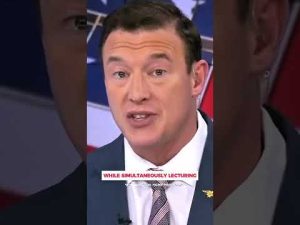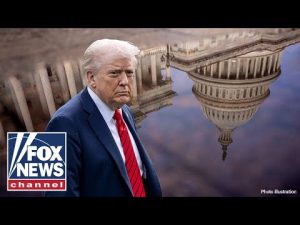In a world increasingly driven by secular narratives and shifting cultural values, personal faith journeys remind us of the timeless quest for truth and meaning. One individual’s profound transformation highlights the enduring impact of religious beliefs on personal identity and societal outlook. Here, the conversion story is not just about personal change but acts as a lens through which broader cultural and political discussions unfold.
The narrative begins with a background deeply rooted in Jewish tradition, shifting towards Christianity in midlife. This transition is not merely a change of religious affiliation but a philosophical awakening. Sparked by the realization that moral relativism fails to provide a satisfactory answer to fundamental questions of right and wrong, the journey begins with Dostoevsky’s “Crime and Punishment.” This literary encounter sets off a chain reaction, leading to a confrontation with a fundamental idea: if truths exist, there must be a supreme good anchoring them, a conscious entity we come to recognize as God.
For years, societal and cultural pressures, alongside a career in a secular stronghold, kept personal faith in the periphery. However, a phase of recovery from a personal crisis paved the way for a deeper exploration of spirituality. In a society that often derides traditional religious practices as mere crutches, praying becomes a lifeline. It’s about establishing a direct line to the divine, and over time, formalizes through conversion and baptism, despite potential personal and professional ramifications.
This shift is not without its difficulties. It challenges careers and familial relationships, often placing personal convictions at odds with long-held cultural and professional practices. Within the context of America, where religious and cultural identities are in constant flux, the story resonates as it touches on enduring debates regarding individual faith versus societal expectations. The debate extends beyond personal to political, touching on the growing influence of varied religious groups in American public life, the challenges posed by integrating this diversity while maintaining core Western values.
Faith is viewed not just as a personal refuge but as an explanatory lens for comprehending contemporary socio-political dynamics. The increasing presence of varied religious politicians and communities in the United States raises questions about cultural and religious integration – issues that the conversion story indirectly critiques by examining the roots of faith, identity, and collective cultural trajectory. While recognizing the individuals’ opulent contributions across religious divides, the narrative invites a deeper conversation about the implications of shifting demographic trends and their alignment, or lack thereof, with values associated with Western civilization.
The personal journey underscores a broader cultural critique: the tendency to embrace secular ideologies while forsaking spiritual truths, leading to societal alienation from foundational human experiences such as motherhood and family life. Asserting that the erosion of these connections is spiritually driven, the narrative ties back to a central truth: unity and understanding among diverse cultural and religious groups are paramount. However, this is rooted in the acknowledgment of a shared heritage and the divine essence that binds humanity beyond the divisive narratives of modern political discourse.







